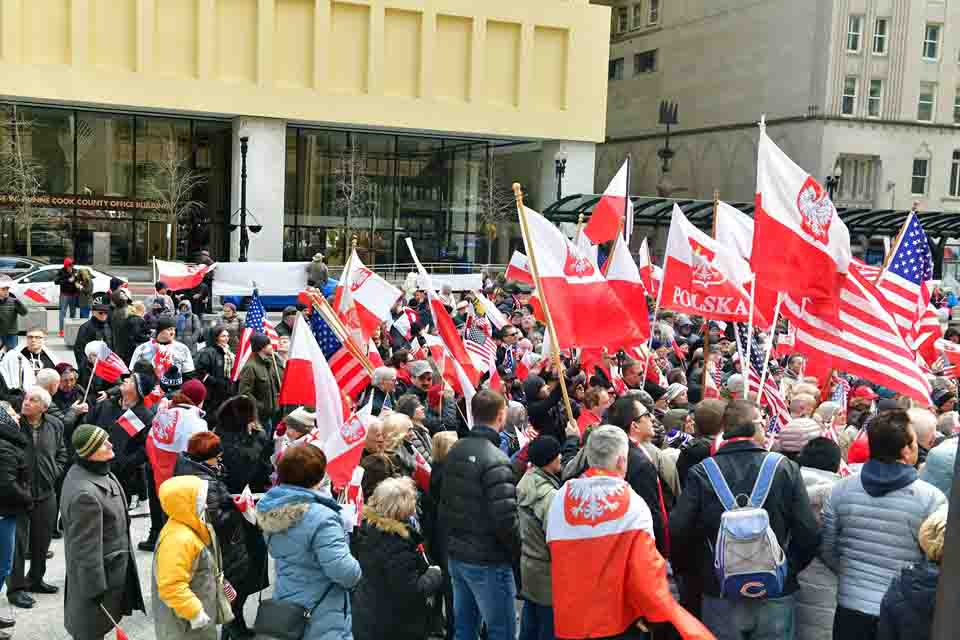The coronavirus pandemic since March has caused much tangible and less tangible damage but may have had a positive impact on some processes. Despite social isolation, it had a positive impact on the integration of the Polish community. This is evidenced by the last record turnout in the presidential elections. In the United States, over 46,000 people registered for the Polish presidential elections, and the voter turnout was 77%. Over the past two years, the leaders of the Polish American community have been striving for a professional approach to communication with state offices in the Republic of Poland.

"Passport to Poland" - the program I coordinated - showed that building a network of mutual communication with the use of digital platforms and social networks has passed the exam. It was possible thanks to the involvement of many people. On the one side, it was the integration of the Polish community abroad, and on the other, the research of needs and communicating them to government agencies in order to optimize systems. With each subsequent election, from the elections to the European Parliament and ending with the presidential elections, the voter turnout in the US increased. In 2019, 10,455 votes were cast in the EP elections, 29,195 for the Senate, and 29,517 for the Sejm. In 2020, in the first round of the presidential elections, the number of votes cast was - 26,144, and in the second round - 35,995, with a record number of 46,197 people registered for voting. The overwhelming majority of American Polonia voted for the right wing that values the Christian tradition of the Polish nation. This success must be nurtured.
The next stage of this success could be a permanent representation in New York of the Chancellery of the Prime Minister or the President for the American Polish diaspora. This way, we could even better develop the connection of the Polish diaspora with their homeland and vice versa. Apart from the obvious fact of integrating departmental institutions in New York, the suggested institution should focus on the most important, systemic support for identity education. An office, such as a transmitter, equipped with small grants from Poland, should stimulate the acquisition of large American funds in order to develop Polish-language education, by educating students, employing Polish teachers and leaders who support this process logistically. The consulate of the Republic of Poland in NY should ensure a decisive participation in the process of integrating parents by delegating a specialized employee or an executive expert employed on the basis of local law. Until now, most of the parents of Polish students were not properly informed, and therefore did not pay attention to minor legal tricks. Data from the New York City Department of Education are underestimated and indicate only a handful of Polish-speaking students, so they are not adequately funded by the city. There is only one bilingual program at the Public School in Greenpoint, and there may be many more. The report prepared by me, in cooperation with training schools, shows that there are many more than two and a half thousand Polish-speaking students within the New York metropolis. Acting as a member of the metropolitan council of "Citywide Council on English Language Learners" and being on the data committee, and previously representing the district 14 (Greenpoint/ Williamsburg), important for the Polish diaspora, I proposed legislative changes. The resolution I prepared, adopted unanimously by the Council at the meeting on July 7, 2020, radically changes the assumptions of the method of selecting languages, other than English, as mandatory in the communication of the New York Department of Education with local communities, including the Polish diaspora. Another activity is also the creation of favorable conditions for public-private partnerships, such as charter schools under the auspices of e.g. the State University of New York (SUNY). Currently, a project of an art school for New York youth is being prepared in Yorkers. Efforts have also been initiated to create a higher education bridgehead in New York, through the cooperation of Polish research centers with New York centers and academic exchange. We are going in the right direction, but we need active partners on the part of the Polish government, the Chancellery of the President of the Republic of Poland, and the attention of the Development Cooperation Program Council at the Ministry of Foreign Affairs.



